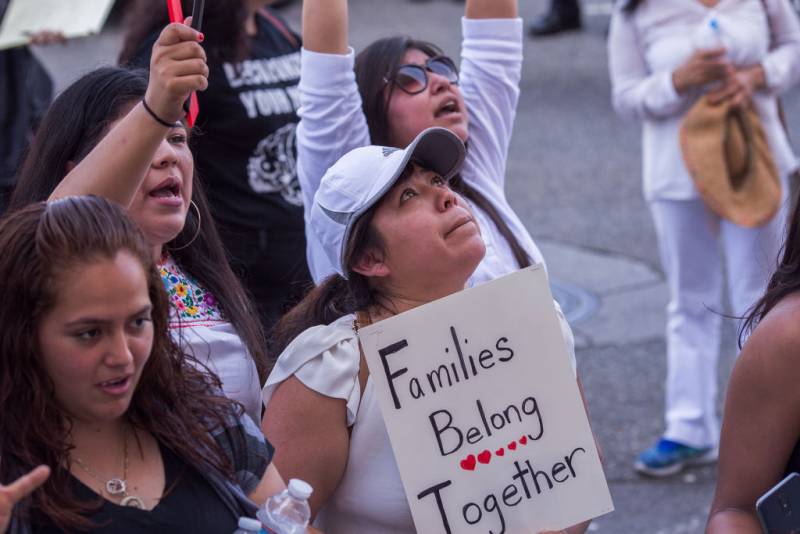"Only [after the debate] did we hear from the government that maybe they might have additional information," he said. "And now we're first getting this information that actually adds phone numbers and addresses for many of the people for whom we didn't have anything for."
Gelernt said lawyers are still going through the data, and hope it will help them locate the remaining 628 parents that they're still searching for, who remain separated from their children. More than 300 of those parents "are believed to have been removed from the United States following separation from their children," according to a status report filed in court on Wednesday.
The Trump administration began its formal policy of family separations in the spring of 2018. After months of public outcry, Sabraw issued an injunction ordering an end to separations that June, and required the government to swiftly reunify children with their parents. Authorities eventually identified 2,814 separated children.
But in early 2019, the Office of Inspector General for the Department of Health and Human Services issued a watchdog report charging that the border separations began much earlier than had been previously thought — as early as July 2017. It identified more than 1,500 additional families that had been separated. This group makes up the majority of families that advocates and lawyers are still searching for.
Sabraw asked for a written declaration from Trump administration officials by Jan. 13, that explains "what happened and why, and how is it that the EOIR databases were identified at this late date."
The late disclosure of contact information has also raised questions about whether the federal government may be holding onto more contact information.
"You know, I keep thinking, 'Well, OK, this time they've given us all the information,' and then it turns out that there are more families that have been separated, or more contact information," Gelernt said. "I suspect that there is still some more information out there. We hope we get that soon. We hope we don't have to wait for a Biden administration to get every last piece of data that might help us. But we'll have to wait and see."
